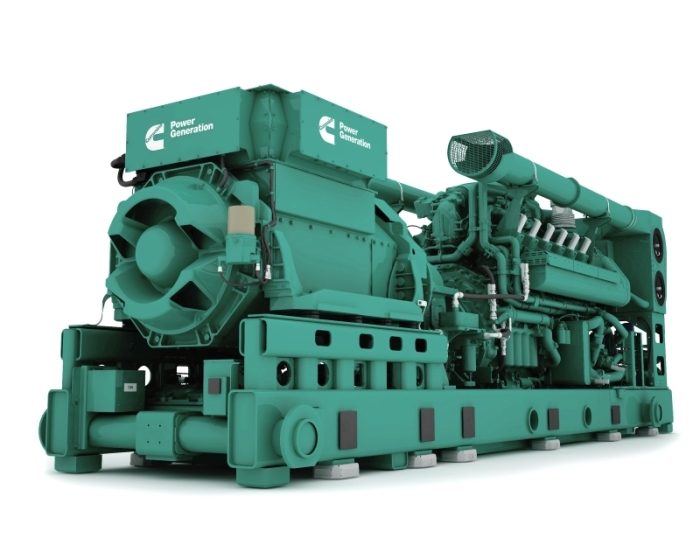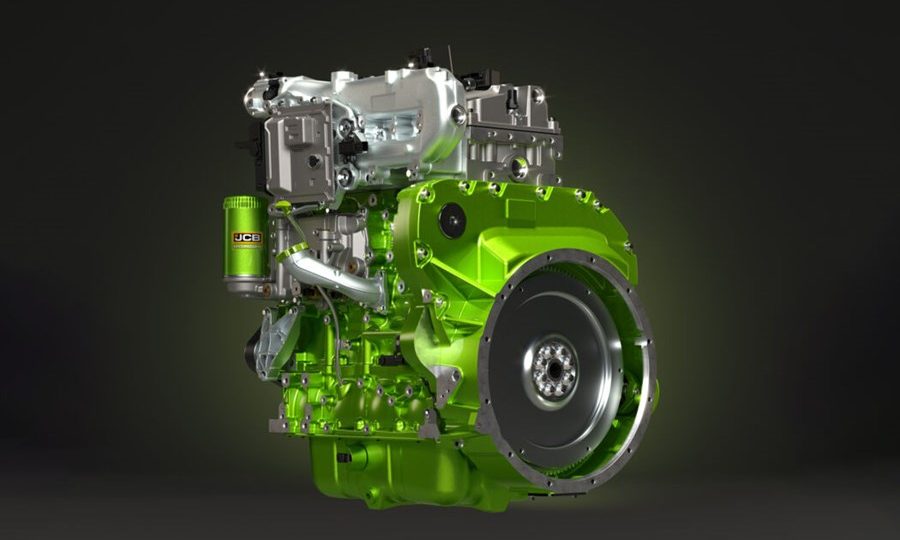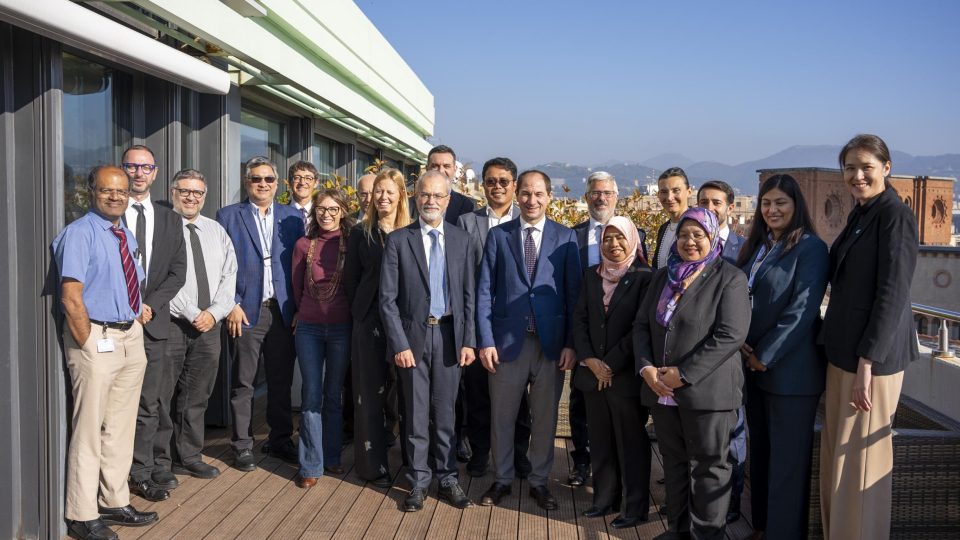MAN Engines at EnergyDecentral 2024 with battery solutions for container applications
MAN Engines is presenting its new MAN BatteryPack, the design development of the E32 engine series and a 3D model of the MAN E3872 at EnergyDecentral in Hanover.
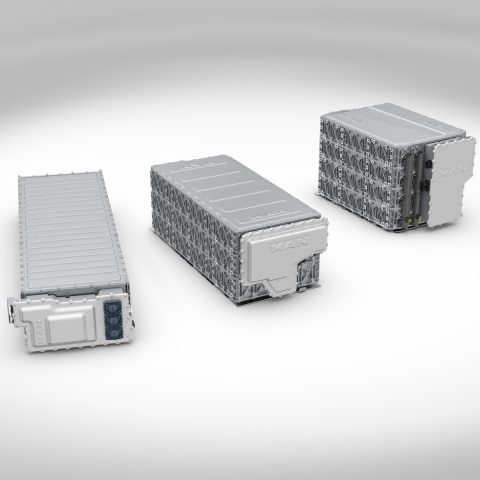
MAN Engines is presenting its latest developments for electricity storage in the industrial sector for the first time at EnergyDecentral in Hanover (Nov. 12-15). The focus of the trade fair appearance will be on the innovative MAN BatteryPack, which sets new standards in terms of quality and robustness and can therefore play to its strengths especially in mobile applications.
The MAN BatteryPack is based on state-of-the-art nickel-manganese-cobalt batteries (so-called NMC battery) as a variant of the lithium-ion battery. This advanced battery solution is characterized by its focus on cell chemistry, charging cycles, mechanical robustness, vibration resistance and service life. “We see MAN BatteryPacks in mobile charging solutions that are exposed to high loads and at the same time have to meet a variety of different operating conditions. Compared to other cell chemistries, NMC cell chemistry offers a high energy density, which is very crucial for mobile applications,” says Reiner Roessner, Head of Sales MAN Engines. Thanks to the modular design of the MAN BatteryPack, customers can flexibly and individually scale the capacity and performance of their energy storage systems for different energy requirements in order to optimally reflect their specific needs.
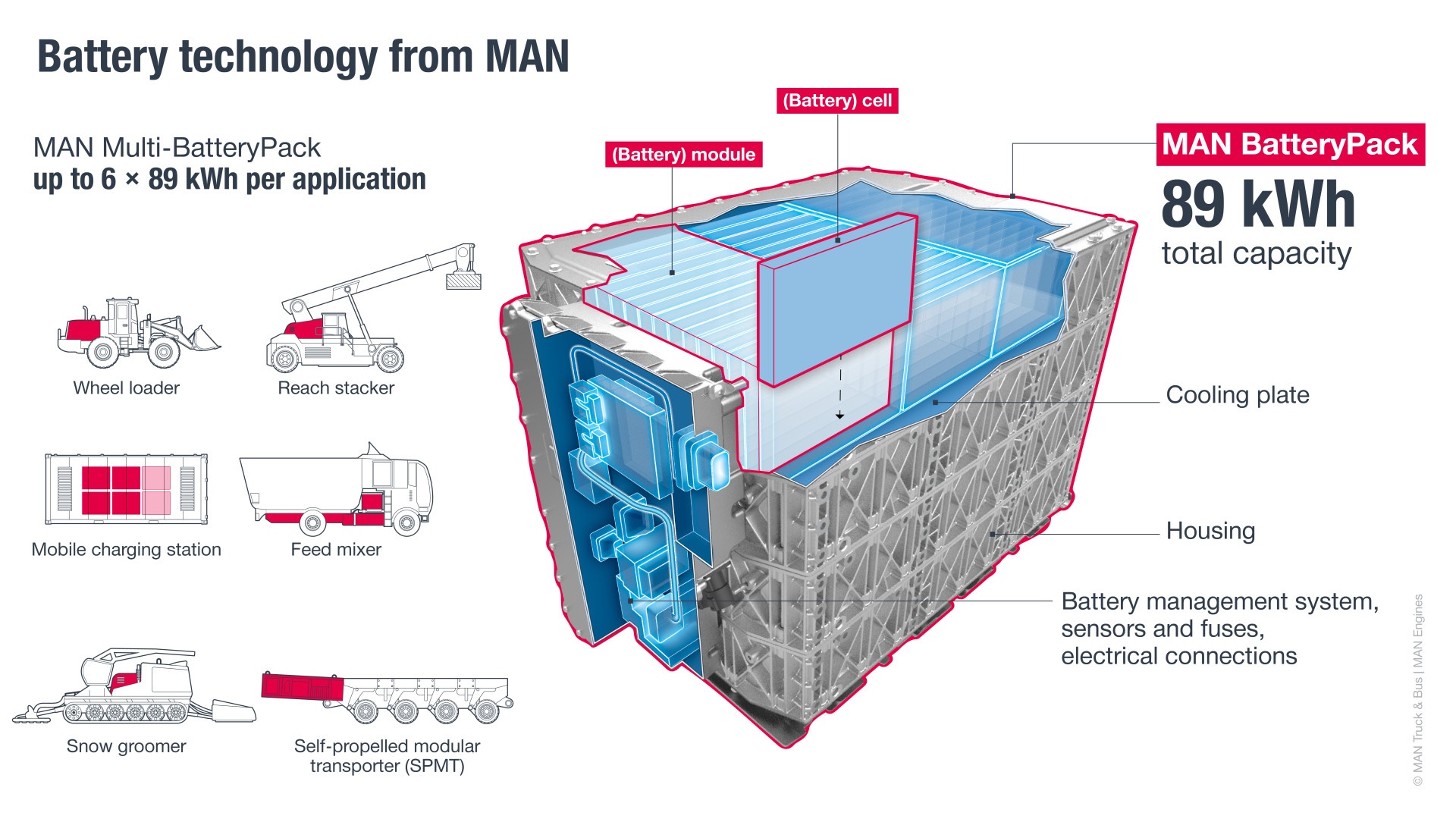
A MAN BatteryPack stores 89 kWh of energy, of which 80 kWh can be used. Due to the three varying shapes – from almost square to elongated – there are a wide range of integration options in different installation spaces. Currently, up to six MAN BatteryPacks can be combined to achieve a total system capacity of up to 534 kWh gross (480 kWh net). Expansion to other packs for higher capacities is being planned.
Further technical development of the E32 series (V12 and V8)
Another highlight at EnergyDecentral 2024 is the MAN E3268, which is equipped with a revolutionary cylinder head. The V8 gas engine on display is an example of the entire MAN E32 series, consisting of V8 and V12 engines that benefit from technical development. This update to the cylinder head brings numerous improvements and sets new standards in terms of reliability and efficiency. The design changes made to the new cylinder head further increase the robustness of the engine and thus contribute to a further reduction in the total cost of ownership (TCO).
A key feature of this innovation is the introduction of two O-rings in the spark plug sleeve. In contrast to earlier models, these two O-rings have been placed in the cylinder head in a more optimized way, resulting in significant thermal relief and better coolant flow. This arrangement ensures significantly higher resistance to chemical and thermal influences, for which new O-rings made of particularly resistant material were also chosen. In addition, it is possible to optionally equip the cylinder head with pre-chamber spark plugs, which are becoming increasingly popular in the biogas sector. Pre-chamber spark plugs have a small chamber that is located in front of the main combustion chamber. This enables more efficient ignition of the gas mixture, which leads to improved engine performance and higher efficiency, especially in biogas applications.
Other robustness-enhancing measures include the adaptation of the exhaust valve and valve seat with more wear-resistant materials. In addition, Rotocaps integrated into the new cylinder head contribute to the additional robustness of the engine, which further increases its reliability and longevity. Rotocaps provide uniform thermal stress on the seat rings and valve discs because when the valve is opened, a disc spring is flattened and presses on a ring of balls, causing the valve to rotate slightly with each opening stroke.
E3872 available in series production
Another highlight of EnergyDecentral is the new MAN E3872 with a displacement of 30 litres, which is available in 50 and 60 heart variants for natural gas as well as special applications from the series. With an impressive 29.6 liters of displacement, a bore of 138 mm and a stroke of 165 mm, this four-stroke gasoline gas engine delivers a remarkable performance of 735 kWmech at 1500 rpm and even 840 kWmech at 1800 rpm. With nitrogen oxide values of 500 mg/Nm³ NOx (5% O2), the compact V12 engine achieves an impressive mechanical efficiency of 44.0% at 50 Hz.





